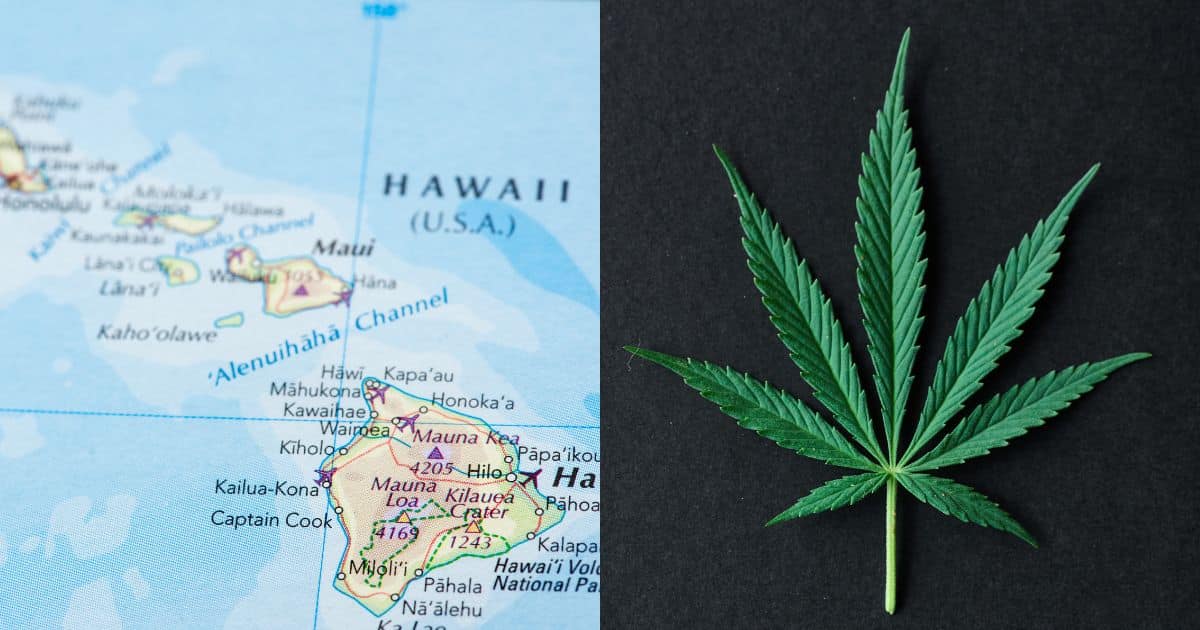Senate Bill 3335 was supposed to represent a new chapter in Hawaii’s relationship with marijuana, but as it turns out, this chapter is not to be written just yet. The state’s potential legalization of cannabis has hit a roadblock, with the bill that could have made history appearing to be effectively dead, at least for this legislative session.
In a calendar year marked by unprecedented wildfires that ravaged communities, the Hawaii House Finance Committee, chaired by Democrat Kyle Yamashita, chose to put an end to the bill’s consideration for this year. The decision came not long after the committee expressed overwhelming concerns about the proposed regulation and the broader impacts that the legislation might have on society.

Navigating a Divisive Issue
Despite the bill gaining momentum in the Senate, in the last weeks leading up to being tabled in the Hawaii House Finance Committee, it passed a House floor, with a close 25–23 vote, the divisions it caused were significant.
Amid reports of the State’s fiscal challenges due to natural disasters, the debate around marijuana legalization became intertwined with concerns for the State budget. The bill’s passage presented a dilemma for Hawaii’s leaders. While some residents and lawmakers supported the bill for social justice and economic reasons, others worried about resource allocation.
“The path to legalizing adult-use cannabis has been a deeply divisive issue. This year marked its furthest progression, with SB3335 narrowly passing its second reading. Due to numerous concerns regarding the implementation of the bill, the House has decided against further deliberation in the House Finance Committee. This decision is strengthened by the prevailing ‘no’ votes from committee members expressed on the House floor.” said Finance Chair Kyle T. Yamashita in a statement about SB3335.
“During an abnormally fiscally challenging year, the committee must prioritize addressing wildfire-related expenses after the August 8 tragedy in Lahaina and Upcountry Maui. Ensuring the recovery of our communities continues to come at an extraordinary cost to the state budget, and the full cost of implementing the legalization of adult-use cannabis is unknown.“
In addition to fiscal and timing concerns, the decision to shelve the marijuana bill reflects the significant weight Hawaiian officials afforded to law enforcement testimony. With serious concerns voiced about the potential impact on children, the economy, and the broader well-being of the state, this aspect of the debate highlighted the state’s delicate balance between social policy and public safety. The opposition raised by members of law enforcement underscored the complexity of reshaping Hawaii’s drug policy while preserving public health and safety.
“In hearing the overwhelming testimony and serious concerns from members of Hawaiʻi’s law enforcement industry, this bill requires further consideration of the impact legislation will have on our children, economy, and overall well-being.” said House Speaker Scott K. Saiki
Key Provisions of SB3335
Senate Bill 3335 was crafted under the eye of the state’s very own Attorney General, and if it had been passed, it would have significantly altered the legal landscape of cannabis use in Hawaii. Scheduled to take effect on January 1, 2026, the bill aimed to allow adults over the age of 21 the right to possess up to one ounce of cannabis and five grams of concentrates.
Furthermore, it provided individuals the freedom to cultivate up to six plants at their residence, marking a monumental shift from the state’s previous restrictions. In terms of financial implications, SB3335 introduced a taxation framework with a 14% retail tax on adult-use cannabis and a reduced 4% tax for medical use.
The revenue generated from these taxes was intended to be allocated across various fundamental areas such as regulatory enforcement, social equity, public health initiatives, and public safety measures, ensuring a holistic approach to the incorporation of cannabis into Hawaii’s social and economic fabric.
Additionally, the bill included a key provision establishing the Hawaii Hemp and Cannabis Authority, governed by the Cannabis Control Board. This authority aims to provide stringent oversight of the adult-use cannabis market.

Hawaii’s step back from the marijuana legalization debate doesn’t mean it’s off the table forever. The recent events show the need for a well-rounded approach to handling controversial policy changes. Supporters and opponents of cannabis legalization can now rethink their strategies and lay the groundwork for a better reception in the future.
The situation with Hawaii’s cannabis bill reveals the complex mix of legislative processes, societal factors, and state priorities. It also sheds light on the emerging issues as more states deal with the cannabis dilemma. While the bill didn’t move forward this year, it’s clear the discussion is ongoing and evolving. The decision to revisit the legislation later reflects the practical and patient approaches needed for significant policy changes.
Local advocates and cannabis groups will likely take time to reassess in the coming months. The path to adult-use marijuana in Hawaii is still uncertain but not impossible. The discussions on social equity, economic empowerment, and public health will continue to shape Hawaii’s journey through the cannabis reform landscape.
- Delaware’s Recreational Cannabis Market Finally Set to Launch After Years of Challenges
- Excise Tax Increase to 19% and Its Impact on California Retailers
- Nebraska’s Governor Approves Emergency Medical Cannabis Regulations
- We Must Advocate for Fair and Accurate Marijuana Impairment Testing Policies
- The Global Roots of Plant Medicine: Why Cannabis Has Always Been Part of the Plan
- Military Construction and Veterans Affairs Bill Amendments Could Change Medical Marijuana and MDMA-Assisted Therapy Options for Veterans














